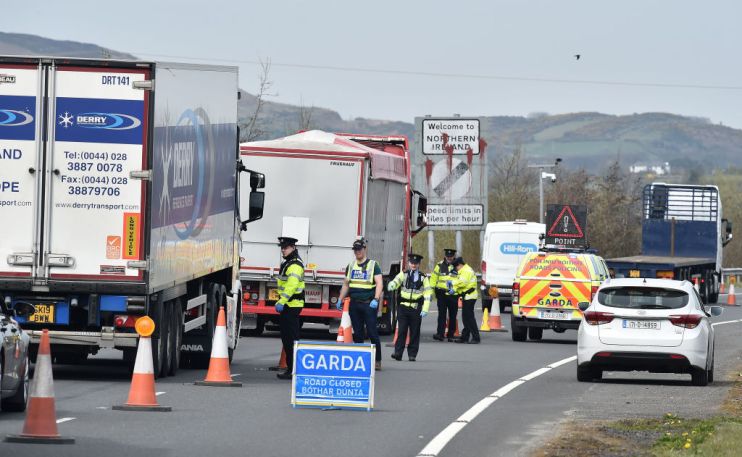Brexit trade talks: UK ‘U-turns’ on full border checks for EU goods

The UK government has reportedly U-turned on its plan to implement full border checks with the EU from 1 January 2021 after Brexit.
Ministers are under increasing pressure from businesses not to deliver a no-deal Brexit as the UK’s recovery from coronavirus looks likely to be a slow one.
So far Boris Johnson’s government has stuck to a December 2020 deadline to strike a deal. He and EU Commission president Ursula von der Leyen are set to meet for crunch talks this month, but the two sides are far apart on key issues.
Now Cabinet Office minister Michael Gove has reportedly accepted businesses should not have to tackle coronavirus and disruption at Britain’s borders.
The government will opt for a temporary so-called light touch regime at Dover and other UK ports, the Financial Times reported.
That would replace full import checks both under a deal scenario and a dreaded no-deal Brexit.
But the FT reported senior officials concede checks on UK exports are likely when they arrive in France.
I“We recognise the impact that coronavirus has had on UK businesses,” a Whitehall official told the newspaper. “As we take back control of our laws and borders at the end of this year, we will take a pragmatic and flexible approach.”
It is a sharp about-turn from the government’s position in February, when Gove said goods from the EU would face checks.
Whitehall officials told the FT an official announcement could confirm the new approach later today.
It would mean agricultural goods would not require lengthy stops at border inspection posts, and animal products could forego the need for immediate health certificates.
Industrial goods could also benefit from delayed customs declarations and postponed customs taxes. Instead, firms would pay VAT in the quarter after goods arrive.
The FT reported that the UK hopes in return the EU would renew a no-deal Brexit offer on sectors such as aviation and trucking permits.
Adam Marshall, director-general of the British Chambers of Commerce, said simplifying trade across borders was “crucial” to businesses already suffering from coronavirus.
“The UK government should look to prioritise flow, not revenue or bureaucracy,” he added.